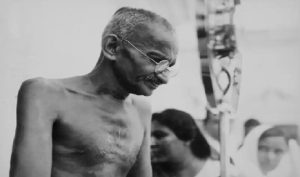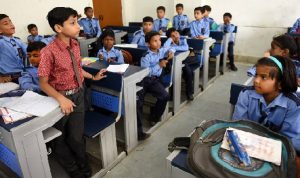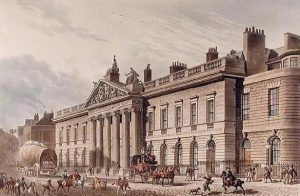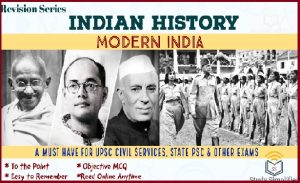15-04-2023
Bureau Report + Agencies
NEW DELHI/ MUMBAI: A group of historians from India’s leading universities have slammed recent revisions to school textbooks that include removing or trimming references to Islamic rule in the subcontinent and to the anger among some Hindu extremists at independence leader Mahatma Gandhi’s pursuit of Hindu-Muslim unity.
 Education authorities have said the history, political science and sociology texts were revised as part of a “rationalization process” but critics’ charge that the amendments help promote the Hindu nationalist vision of Prime Minister Narendra Modi’s Bharatiya Janata Party.
Education authorities have said the history, political science and sociology texts were revised as part of a “rationalization process” but critics’ charge that the amendments help promote the Hindu nationalist vision of Prime Minister Narendra Modi’s Bharatiya Janata Party.
School textbooks issued by the National Council of Educational Research and Training (NCERT), an autonomous organization under the Education Ministry, are part of the curriculum in thousands of schools across the country.
NCERT director Dinesh Prasad Saklani has denied allegations that the revisions were made with a political agenda and said they are meant to lighten the academic load on students in the aftermath of the COVID 19 pandemic, which led to loss of learning.
“It’s a professional exercise meant to help students hit by the pandemic and has no ulterior political motive,” he told television news channel, NDTV.
However a group of 250 historians and academics said that while they understand the need for periodic revisions of school texts, this round “reflects the sway of divisive politics over pedagogic concerns.”
 “Selectively deleting several important themes from school textbooks is not only doing great disservice to the composite heritage of the Indian subcontinent, but betraying the aspirations of the Indian masses,” historians and academics from India’s top universities such as Delhi University, Jawaharlal Nehru University and Ashoka University said in a statement on Friday.
“Selectively deleting several important themes from school textbooks is not only doing great disservice to the composite heritage of the Indian subcontinent, but betraying the aspirations of the Indian masses,” historians and academics from India’s top universities such as Delhi University, Jawaharlal Nehru University and Ashoka University said in a statement on Friday.
While textbooks have been amended before, critics say the latest changes are efforts to bypass the period when Muslims ruled India.
Passages on Mughals, who ruled in North India between the 16th and 19th centuries, have been either trimmed or removed in secondary and senior school texts. Right wing Hindu groups consider the Muslim rulers oppressors and wanted more focus in history texts on ancient India, which they say reflects the achievements of India under Hindu rulers.
Several towns and streets bearing Muslim names have been renamed with Hindu ones since the BJP came to power.
Prime Minister Modi said at an event last December, that in the name of history, “concocted narratives” were taught to infuse inferiority and there is a need to break free from the “narrow views” of the past to move forward.
 Historians underline how diverse races and religions that came to India over the centuries molded its identity.
Historians underline how diverse races and religions that came to India over the centuries molded its identity.
“With these revisions, future generations of students might lose out on the basic nuances of how that historical progression had taken place in India,” pointed out Archana Ojha, professor of history at Delhi University, who is a signatory to the statement. “You cannot write history on the basis of religion. It is an account of human progression based on political, economic and other changes. For example the process of urbanization of Delhi began in the 13th century with a Muslim ruler. The Mughals were as much Hindustani [Indian] as others.”
Other deletions in the school texts include references to the links between Hindu extremism and the assassination of Mahatma Gandhi, the dislike of his pursuit of Hindu-Muslim unity among some Hindus, as well as the ban imposed on the right wing Rashtriya Swayamsevak Sangh, in the aftermath of his killing. The RSS is called the ideological parent of the ruling BJP.
 Among the deleted references is one that says Gandhi “was convinced that any attempt to make India into a country only for Hindus would destroy India.”
Among the deleted references is one that says Gandhi “was convinced that any attempt to make India into a country only for Hindus would destroy India.”
References to the riots that wracked Gujarat state in 2002 killing almost a 1,000 people, mostly Muslims, when Prime Minister Modi headed the state have also been dropped. So have some accounts of some social movements and caste-based discrimination in Hinduism.
The historians, several of whom had worked on the syllabus in the past, said in their statement that the attempts in the earlier texts were to make them as inclusive as possible, and to provide a “sense of the rich diversity of the human past both within the subcontinent and the wider world.”
Calling for the changes to be recalled, the statement said that “removing entire periods of history from textbooks would not only perpetuate misconceptions and misunderstandings, but would serve to further the divisive communal and cattiest agenda of the ruling elites.”
“When we revise history we do so on the basis of new evidences, new sources or what is found in archival records  which may have been overlooked. It is not done on the basis of what politicians or a certain class of people want it to be,” said Ojha. She pointed out that “in the latest revisions, there are just deletions, no new additions.”
which may have been overlooked. It is not done on the basis of what politicians or a certain class of people want it to be,” said Ojha. She pointed out that “in the latest revisions, there are just deletions, no new additions.”
In an editorial last week, the Indian Express newspaper, said that while curriculum reforms should be par for the course, the recent ones “excise content related to chapters in history that have acquired political overtones under the current regime.”
The newspaper said the deletions from the textbooks invite the charge “that not only does the government wish to escape unpalatable facts, but it also wants to ensure that students do not engage with social and political realities with a critical attitude.”
 Pressmediaofindia
Pressmediaofindia




